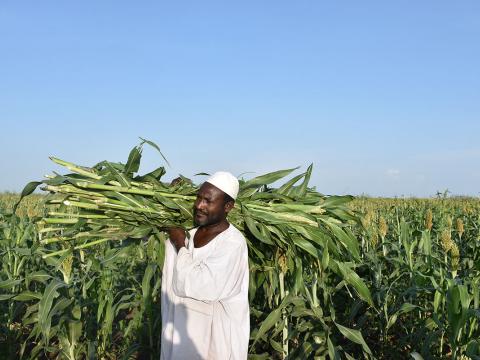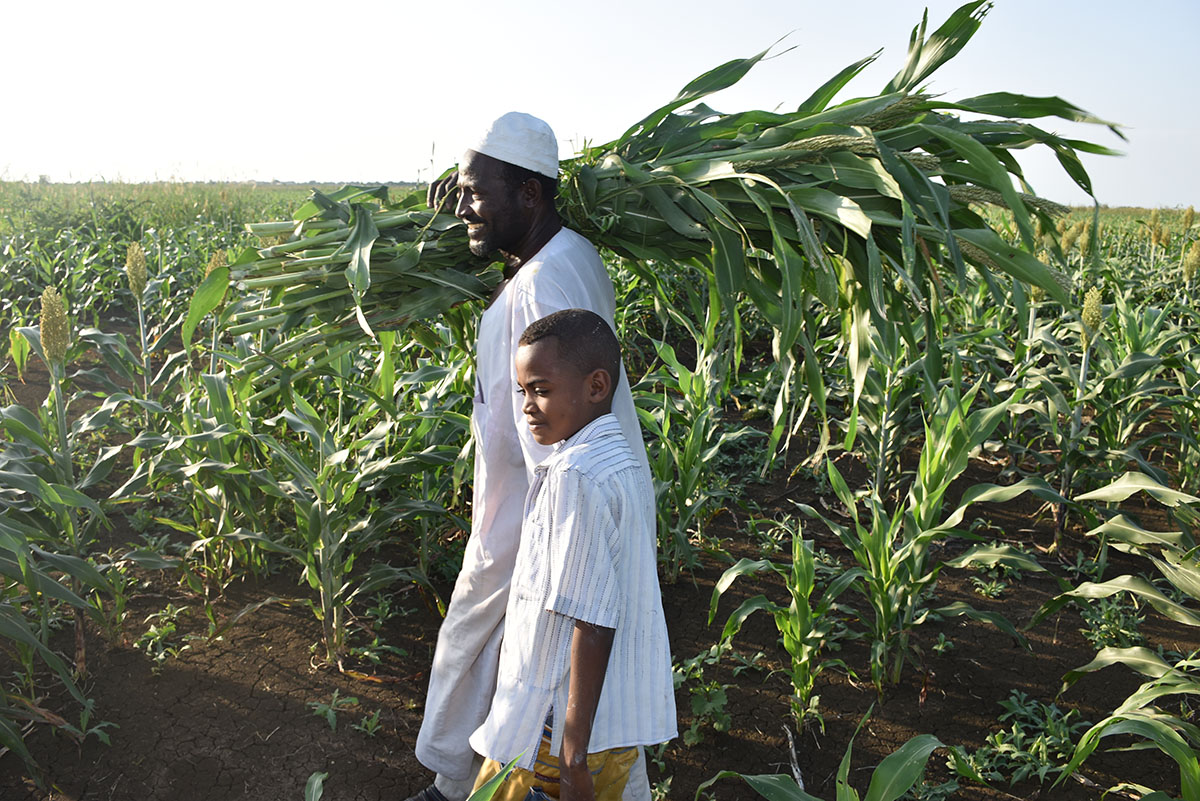Financial assistance for farmers provides a major boost: Here’s why

According to the UN FAO, #zerohunger means: working together to ensure everyone, everywhere, has access to safe, healthy and nutritious food they need. To achieve this, FAO calls for on all stakeholders to work together, share knowledge and be willing to help change the world for the better.
In Blue Nile, World Vision is collaborating with the private sector organisations, donors, local partners and farmers to help them fully comprehend the power of agriculture to change the lives of their communities.
Around the month of October is usually the best time of the year for farmers in the Blue Nile region, southeast of Sudan.
42-year-old Ramadan al Talib from Ganees location in Roseiries locality is a smallholder farmer. He grows sorghum, which is a staple food for most Sudanese people.
The father of six is a member of a Farmers' Association established in December 2017 to help farmers in Blue Nile improve their knowledge and skills on farming, store and market their crops collectively.
One of the key goals of the associations is helping farmers create effective partnership with financial institutions such as the Blue Nile Micro-Finance Institution (BNMFI)).
This is a key component of a project funded by theEuropean Commission in Blue Nile.
In July, Ramadan was one of 15 farmers who received support in the form of cash assistance (low-interest loan) worth US$285 from the Micro-finance institution.
“We received the money just before the planting season, it couldn’t have come at a better time,” Ramadan says. We were able to purchase certified seeds, pesticides and fertilizers to enable and hence did not experience delays in planting unlike if we didn’t receive financial support,” he adds.
To ensure participation from the farmers and discourage total dependence, the farmers contribute 40% of the total cost of the farm inputs.
Having farmers contribute a portion is intentional and designed to gradually transition farmers from depending on World Vision financial support to self-reliance.
"Being a member of such association is a major boost for most farmers because of the timely support farmers receive," Ramadan says.
Ramadan expects to harvest 75 sacks of 90-kilogramme size.
Repaying the loans
The farmers repay the loans on a monthly instalment after harvesting their crops and at a rate of 4 % from the sales of the total production.
The Micro-finance institution has signed a Memorandum of Understanding with World Vision to fund 113 small-scale farmers in two localities (Roseiries and Wad al Mahi localities in Blue Nile state.
"Our partnership with the farmers is not focussed on high returns for the institution but is aimed at supporting farmers to have access to financial services at lower interest repayment rates so that they can purchase farm inputs,” Abdulbagi Mohammed- manager of the Blue Nile Micro-finance Institution explains.
"We are looking forward to sustained partnership with the small-scale farmers to boost food security in the Blue Nile and also hopefully with time, farmers will get used to the idea of conservation agriculture," Abdulbagi says.
According to Monir Elias, World Vision project coordinator of the project in Blue Nile, nine farmers’ associations in Roseries locality, have received micro-finance assistance from the BNMFI, which has gone along way in boosting their farming.
"The objective of forming the associations is to help farmers continue practicing the farming methods and skills they acquired beyond the life of the project," Monir says.
The farmers have also received training on financial management and bookkeeping and agricultural insurance.
The Farmers Associations have also had key milestones such as being registered with the General Registrar of Associations and Organisations.
World Vision continues to support the farmers to network with the banking sector and insurance companies.
Monir is hopeful that the approach to use of farmers' associations in Blue Nile will promote sustainability of the project, and if that happens, then that will be the measure of its success.
In 2017 1,276 farmers in three localities (Roseiries, Wad al Mahi and Tadamon) across Blue Nile were supported through this project. In the 2018, World Vision targeted 1,067 to receive support.
This year's theme:
"Our actions are our future: A zero hunger world by 2030 is possible.
By Gamal Ghallab, Comms Officer, World Vision Sudan
